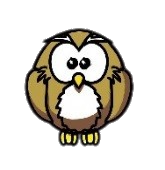
Brisbane Park Infant School
Writing
Writing at Brisbane Park Infant School
Intent
- To develop independence in writing
- To develop children’s ability to write for different purposes
- To enable children to write in some form every day
- To develop children’s confidence and enjoyment in writing
- To ensure children think about what they want to write, to say it out loud, write it and then read back what they have written.
- To develop children’s handwriting ability and to ensure they start and finish letters in the correct place
- To provide the opportunity for children to spell words at an age-appropriate level, following age related expectations
Implementation
- To provide all children with a daily English lesson
- To practice handwriting every day
- To teach writing across the curriculum and ensure opportunities are given to write in a variety of lessons
- To ensure independence in writing is embedded in each classroom
Impact
- Children will become passionate about writing and enjoy reading back what they have written
- Children’s independence in writing will become apparent by looking at their finished work.
- Writing across the curriculum will be of the same standard as in English lessons.
- Children will use classroom resources independently to support their writing. End of year assessments will demonstrate a good progression and understanding within writing
Independent Writing
Independent writing is an important skill for children to have as they move through their education. At Brisbane Park we begin teaching independent writing skills from Reception and by the time children leave us in Year 2 all children are writing independently and enjoy doing so. It is important for children to be taught the early writing skills to ensure they become fluent, independent writers.
Children are taught to say what they are going to write before writing, this helps them to structure the sentence and to understand how many words they need to write, they then write the sentence using spelling and phonic strategies, once written they then read to check it makes sense.
Children are given opportunities to write in different subjects across the curriculum, allowing them to apply the skills and knowledge from discrete writing lessons.
Writing lessons form part of our English curriculum, different texts are used to engage children and help to create interesting writing outcomes. In both EYFS and KS1 children are taught writing skills and use these in a variety of ways.
Lessons will include a variety of approaches and outcomes for writing and will include both fiction, non-fiction and poetry work. Children are encouraged to use spelling aids such as word mats, spelling books and dictionaries to support their writing. A wish list should be displayed for children to know what is expected in each piece of writing. Quiet, relaxing music is often played during independent writing sessions in KS1. Copying from white boards should be discouraged in both key stages as a general rule.
Handwriting
Handwriting lessons are taught daily across school, children are taught to know the letter families and how to form the letters correctly.
We use the handwriting lesson plans which link to the Bug Club Phonics scheme in Receptionand Year 1. As children move into Year 2 they begin to use a cursive style in preparation for joined handwriting . In Reception and Year 1 children will learn to form the letters correctly, in Year 2 they will build on this skill and begin to use cursive formations.
All classrooms should have on display letters of the alphabet grouped in the correct letter families showing correct formation and starting points for children and staff to refer to as needed.